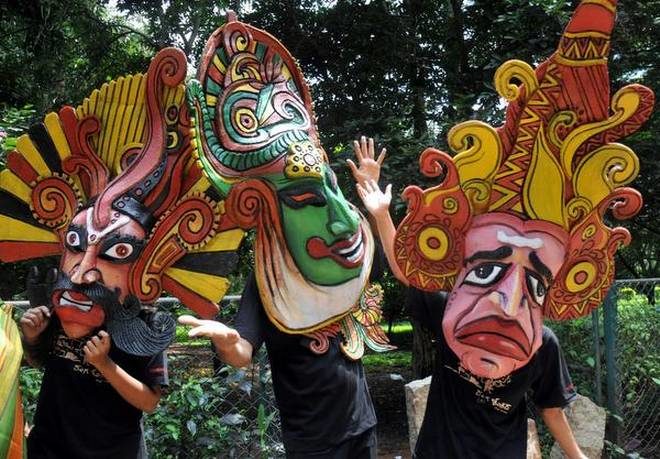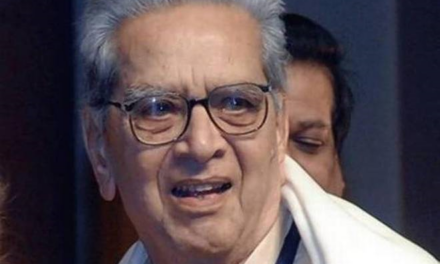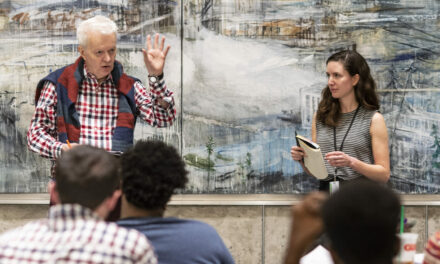Traveling with the troupe results in fun stories. And sometimes in marriage.
Last month I attended what I like to call a “theatre wedding.” Two people, involved in theatre, but more importantly, two people who met because of theatre, exchanged vows/took seven circles of fire/entered into a holy union, surrounded by a fair amount of theatre people. A few years ago, both of them were replacements in an outstation play. And they fell in love on the flight back, thanks to a common love for scuba diving, Shah Rukh Khan, and, probably, theatre.
I’ve seen quite a few theatre weddings. I’ve also seen an unfortunate theatre divorce. Theatre relationships are a dime a dozen, but I’m focusing on more legal commitments here. I guess in some ways a theatre wedding is like a workplace wedding. Same environment, similar interests, regular contact, shared experiences, and something clicks. Mine was a theatre wedding too.
My brother’s father
I met my wife thanks to the theatre. She attended a workshop we organized, and soon after, acted in a few of my plays. We remained colleagues and friends for a while. When this graduated to love, we were performing in a play as father and daughter. Highly inappropriate, you may think. But that’s theatre. My wife has played my daughter, my father’s love interest, my brother’s love interest, and my brother’s mother-in-law on stage. I’ve played my brother’s father, and he has played my father’s lover. Real life is a lot less complicated, I assure you.
One big advantage is that your partner understands things like bizarrely timed rehearsals, stuff from home vanishing to be seen next on stage, and line learning that involves a lot of speaking to yourself. When a cupboard is opened and furry scarves, handcuffs, or a bear costume is found, eyebrows aren’t raised.
Interestingly, bang in the middle of my wedding functions, there was a carnival at Prithvi Theatre, for which I had directed a short piece. So between a fancy luncheon and a “sangeet” function, I swung by the theatre in a three-piece suit to oversee the show. My wife was very understanding.
But as a result, friends now give us their “save the dates” first, so we don’t schedule clashing shows. But this was back in 2011 when we were averaging 150 shows a year. We’re down to half now, and consciously so. Some streamlining was necessary to avoid wear and tear and general saturation. Seventy-five still means half a dozen shows a month, which is fairly formidable. We’ve done close to 50 shows this year already, and have quite a few lined up, including performances in Nagpur, maybe Muscat, Kolkata, Delhi, and Bengaluru. Traveling with the troupe is among the best things about a life in the theatre. It results in the most memorable stories, and on some occasions, marriage.
Pushing boundaries
Speaking of Bengaluru, Ranga Shankara has announced a very interesting theme for this edition of their annual festival. It is a festival of “plays that almost weren’t.” This is rather topical and timely. For as long as there have been plays, there has been resistance to plays. Throughout history, there have been attempts to alter, silence or even completely destroy works of theatre due to “unacceptable content,” whether the motivations for censorship were religious, social, or political. This dates back to ancient Greece, and right up to present day.
But, quoting the Ranga Shankara festival note,
“theatre-makers have long pushed boundaries of ‘offensive’ through their imagery and content.”
And that’s what this call for entries is doing too. I immediately scanned through my productions to see what fit the bill and found that Russian Tsarists had banned Gogol’s The Government Inspector, for making fun of bureaucracy and people in power. I should apply. But from my cast of eight, one actor is shooting in Bulgaria, another is at football matches in Russia and may settle down there, one actress has found recent film success and will redirect me to her manager, while another actor is star of a huge regional franchise and finds it hard to catch up with the rest of us for a drink. In my case, busy actors and not governments are shutting plays down.
Next week, a play I’ve directed will have its last shows. This decision was taken because the content was such that it was limiting the reach of the production, and hence it wasn’t able to justify expenses and upkeep. Ironically, the upcoming shows have a strong advance. It’s easier to shut plays because you had rights for a limited run, or you had a massive fall out within the unit, or you got booed off stage, or have only losses to show. Something concrete as a reason always helps. But ideological decisions are tougher. As is the understanding of when you’ve overstayed your welcome, and when it’s time to hang up your boots. Which is kind of where I’m at with this article. (Exits stage right)
This article originally appeared in The Hindu on July 14, 2018, and has been reposted with permission.
This post was written by the author in their personal capacity.The opinions expressed in this article are the author’s own and do not reflect the view of The Theatre Times, their staff or collaborators.
This post was written by Akarsh Khurana.
The views expressed here belong to the author and do not necessarily reflect our views and opinions.


















